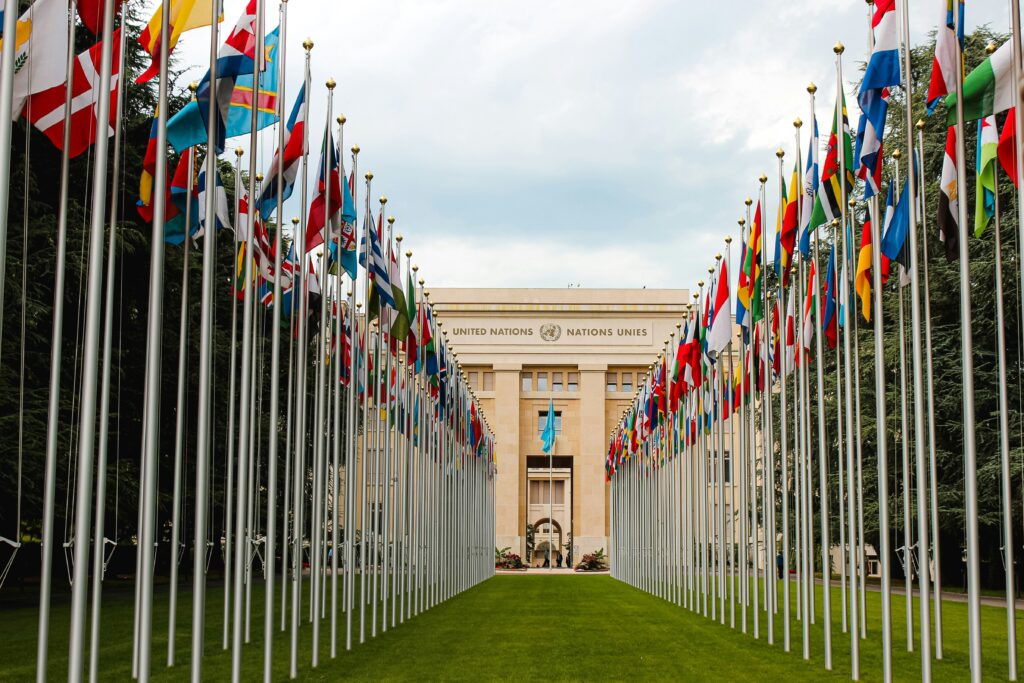President Donald Trump’s decision to scale back U.S. foreign aid has led to major cuts in staff and resources at key United Nations (UN) agencies, including the World Food Programme (WFP), UNICEF, and UNHCR. Due to a substantial reduction in U.S. funding, these agencies have been forced to announce thousands of layoffs and drastic program cuts, affecting humanitarian operations worldwide. Internal memos obtained by the Associated Press highlight the extent of the financial strain and the potential collapse of critical refugee and child aid programs.
WFP Faces Major Cuts Due to US Funding Reduction
The World Food Programme, a key UN agency dedicated to combating global hunger, reported that U.S. funding accounted for nearly half of its 2024 budget. With the U.S. cutting its contribution by a significant margin, the WFP is now expected to reduce its workforce by 30%. This move will impact essential food aid programs serving millions worldwide, including the 343 million people facing hunger and famine risks.
A senior WFP official described the layoffs as the “worst seen in 25 years,” with widespread downsizing and potential program closures looming. The financial cuts are so severe that WFP may be forced to review its entire program portfolio and prioritize only the most urgent food assistance.
UN spokesperson Stéphane Dujarric expressed concern, noting that UN Secretary-General António Guterres is “deeply troubled” by the drastic reductions. The WFP’s operational adjustments will lead to job cuts across every division and geographical region, signaling a major shift in the UN’s ability to respond to global food crises.
Refugee and Child Aid Programs at Risk of Collapse
The UN Refugee Agency (UNHCR) has been hit hard by these funding cuts, with a reported 30% reduction in headquarters and regional office costs. The agency warned that these financial shortfalls could lead to the closure of several country offices and the reduction of critical services for displaced populations. In countries like Sudan, where funding cuts are already in effect, access to clean water for half a million displaced individuals will be severely compromised, risking a rise in disease.
Lebanon, which houses nearly one million Syrian refugees, has been particularly impacted. The UNHCR office there has only secured 15% of the funding it needs, leading to cuts in cash assistance for 347,000 refugees. Furthermore, primary health services for 40,000 refugees have already been halted due to budget constraints.
In response to the worsening crisis, the UNHCR has emphasized the urgent need for increased funding to prevent further deterioration of refugee support services. The agency has warned that without immediate action, the situation for refugees worldwide will continue to worsen, putting lives at risk.
UNICEF and IOM Struggle with Funding Shortfalls
The United Nations Children’s Fund (UNICEF) is facing a 20% drop in its 2025 funding, compared to 2024 levels. A spokesperson for UNICEF explained that this shortfall puts the organization’s progress in improving children’s lives in jeopardy. Despite past efforts to streamline operations and increase efficiency, UNICEF has acknowledged that further cost-cutting measures are inevitable. Officials are currently reviewing every program to preserve essential services, particularly those aimed at defending children’s rights and delivering life-saving aid.
The International Organization for Migration (IOM) is also grappling with a 30% funding shortfall, primarily due to reductions in U.S. contributions. IOM has announced plans to terminate several key programs affecting 6,000 staff and reduce its headquarters staffing by 20%. These cuts will directly impact thousands of migrants and refugees who rely on IOM for support in their resettlement efforts.
The Impact of Trump’s Foreign Aid Policy on Global Humanitarian Efforts
These funding cuts are part of a broader trend of decreasing U.S. contributions to international aid organizations. Trump’s administration empowered Elon Musk’s Department of Government Efficiency (DOGE) to aggressively scale back foreign assistance, a move that has strained UN agencies’ ability to operate effectively. The reduction in U.S. aid, coupled with cuts from other donor countries, has left the UN agencies scrambling to find alternative funding sources.
While many donor countries had already begun to reduce their contributions before Trump’s decision, the steep U.S. cuts have intensified the financial crisis faced by the WFP, UNICEF, UNHCR, and IOM. These agencies, which provide critical support to millions of people in need, are now struggling to maintain their operations.
The financial strain on UN agencies is creating a growing humanitarian crisis that is likely to worsen in the coming months. With critical programs at risk of collapse and millions of vulnerable people depending on foreign aid, it is essential for the international community to step up efforts to fill the funding gap. As the U.S. continues to scale back its foreign aid contributions, other nations and private sector actors must play a larger role in sustaining these vital programs.
